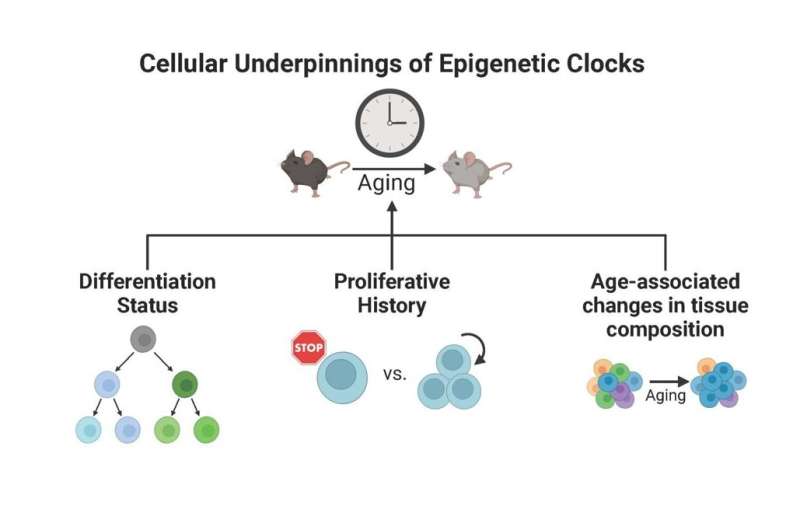Epigenetic clocks are impacted by the differentiation stage and proliferation history of cells, as well as by age-associated changes in cell type composition. Credit: Rebecca Gorelov
How old are you, really? Your chronological age is the number of years you have been alive. Your biological age is how old your cells are, which scientists believe may better assess one’s age-related health and disease risk.
People biologically age at different rates, depending on genetic and environmental factors, so that a person’s chronological age does not necessarily match their biological age.
In recent years, direct-to-consumer biological age tests have become increasingly accessible and popular as interest has increased in this nascent science.
Many of these tests work by looking at distinct changes to the DNA in a patient’s blood or saliva. These changes become more abundant as cells age, a phenomenon known as the “epigenetic clock.” Importantly, though, it is currently unknown if the epigenetic clock advances at a similar pace in the about 200 different cell types in the human body.
A study by Konrad Hochedlinger, Rebecca Gorelov and colleagues from Harvard Medical School and Massachusetts General Hospital, U.S., published in Stem Cell Reports, aims to shed light on this question, asking how the presence of stem cells within a given tissue or organ impacts its epigenetic clock.
…/…
